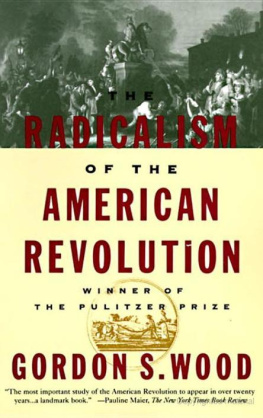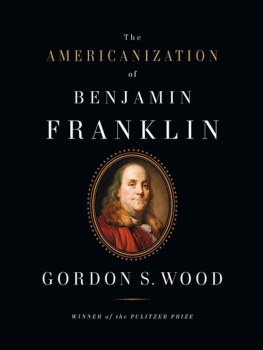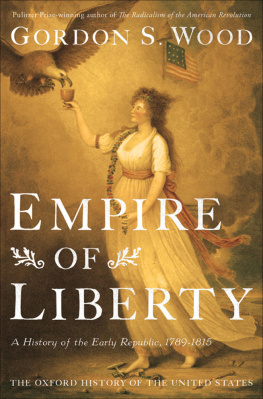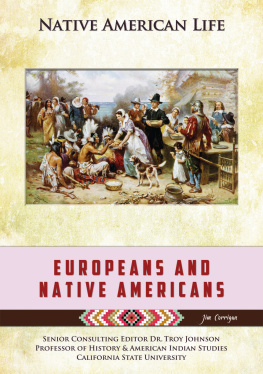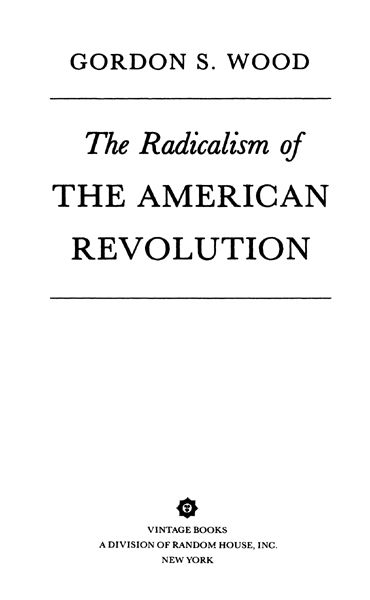Praise for
GORDON S. WOODS
The Radicalism of
THE AMERICAN REVOLUTION
Wood proclaims the culturally and politically transforming character of the American Revolution in this deeply intelligent and beautifully written masterwork.
Patricia U. Bonomi, New York University
In his splendid new book Gordon Wood rescues the American Revolution from those who would see it as a conservative or backward-looking event In a rapidly changing world, Wood provides a timely reminder of the radical energy that drives popular democracy.
T. H. Breen, Northwestern University
A landmark study, a superb achievement The clarity of Woods prose, the richness of his insights, and his choice of quotations and anecdotes make this powerful book a delight to read.
Richard D. Brown, University of Connecticut
Startlingly original An authoritative account of one of the most significant and hitherto elusive transformations in our nations past.
Richard Buel, Jr., Wesleyan University
Indisputably the work of a remarkably creative and gifted historian.
Ronald Hoffman, University of Maryland
A work that vividly re-creates the new American society with almost Tocquevillean power and a brilliant historians flair for the complexities of his subject.
Jack Rakove, Stanford University
GORDON S. WOOD
The Radicalism of
THE AMERICAN REVOLUTION
Gordon S. Wood received his A.B. from Tufts University and his Ph.D. from Harvard University. He has taught at the College of William and Mary, Harvard University, and the University of Michigan, and was Pitt Professor at Cambridge University in 198283. Since 1969 he has been at Brown University, where he is presently University Professor and Professor of History. In 1970 his book The Creation of the American Republic, 17761787 was nominated for the National Book Award and received the Bancroft and the John H. Dunning prizes.
ALSO BY GORDON S. WOOD
The Creation of the American Republic,
17761787
FIRST VINTAGE BOOKS EDITION, MARCH 1993
Copyright 1991 by Gordon S. Wood
All rights reserved under International and Pan-American Copyright Conventions. Published in the United States by Vintage Books, a division of Random House, Inc., New York, and simultaneously in Canada by Random House of Canada Limited, Toronto. Originally published in hardcover by Alfred A. Knopf, Inc., New York, in 1992.
Library of Congress Cataloging-in-Publication Data
Wood, Gordon S.
Radicalism of the American Revolution / Gordon S. Wood.
p. cm.
Originally published: New York: A.A. Knopf, 1992.
eISBN: 978-0-307-75896-5
1. United StatesHistoryRevolution, 17751783Social aspects.
2. United StatesPolitics and government17751783.
3. RadicalismUnited StatesHistory18th century. 4. Political
cultureUnited StatesHistory18th century. I. Title.
[E209.W65 1993]
973.3 1dc20 92-56347
v3.1
To Louise
Contents
Preface
This book is part of a continuing inquiry into the democratization of early America that I have been engaged in during the past several decades. Few subjects are more important to Americans, and perhaps to the rest of the world as well. Americans were not born free and democratic in any modern sense; they became soand largely as a consequence of the American Revolution. After eighteenth-century Americans threw off their monarchical allegiance in 1776, they struggled to find new attachments befitting a republican people. Living in a society that was already diverse and pluralistic, Americans realized that these attachments could not be the traditional ethnic, religious, and tribal loyalties of the Old World. Instead, they sought new enlightened connections to hold their new popular societies together. But when these proved too idealistic and visionary, they eventually found new democratic adhesives in the actual behavior of plain ordinary peoplein the everyday desire for the freedom to make money and pursue happiness in the here and now. To base a society on the commonplace behavior of ordinary people may be obvious and understandable to us today, but it was momentously radical in the long sweep of world history up to that time. This book attempts to explain this momentous radicalism of the American Revolution.
An early version of the book was presented in February 1986 as the Anson G. Phelps Lectures at New York University. I am very grateful to New York University and its History Department for the honor of inviting me to give the Phelps Lectures, which are the most prestigious in the field of early American history. I especially want to thank Carl Prince and Patricia U. Bonomi for their kindness and hospitality during my visit to New York University.
A fellowship at the Center for the Advanced Study of the Behavioral Sciences provided the opportunity to enlarge the lectures and write the bulk of the book. I am very grateful to the Center and its staff for their help. I particularly wish to thank Margaret Amara, Leslie Lindzey, Kathleen Much, and Rosanne Torre, who met every request with care and good cheer. My thanks also to Jonathan Clark of All Souls College for his knowledgeable reading of the first part of the manuscript. I am especially indebted to my friends and colleagues in early American history, Patricia U. Bonomi, Richard Buel, Jr., and Jack Rakove, who read the entire manuscript and offered perceptive and helpful criticism.
As always, I owe the most of all to my wife, Louise, not only for her editorial expertise but for everything else. To her this book is lovingly dedicated.
GORDON S. WOOD
Introduction
We Americans like to think of our revolution as not being radical; indeed, most of the time we consider it downright conservative. It certainly does not appear to resemble the revolutions of other nations in which people were killed, property was destroyed, and everything was turned upside down. The American revolutionary leaders do not fit our conventional image of revolutionariesangry, passionate, reckless, maybe even bloodthirsty for the sake of a cause. We can think of Robespierre, Lenin, and Mao Zedong as revolutionaries, but not George Washington, Thomas Jefferson, and John Adams. They seem too stuffy, too solemn, too cautious, too much the gentlemen. We cannot quite conceive of revolutionaries in powdered hair and knee breeches. The American revolutionaries seem to belong in drawing rooms or legislative halls, not in cellars or in the streets. They made speeches, not bombs; they wrote learned pamphlets, not manifestos. They were not abstract theorists and they were not social levelers. They did not kill one another; they did not devour themselves. There was no reign of terror in the American Revolution and no resultant dictatorno Cromwell, no Bonaparte. The American Revolution does not seem to have the same kinds of causesthe social wrongs, the class conflict, the impoverishment, the grossly inequitable distributions of wealththat presumably lie behind other revolutions. There were no peasant uprisings, no jacqueries, no burning of chteaux, no storming of prisons.
Of course, there have been many historiansProgressive or neo-Progressive historians, as they have been calledwho have sought, as Hannah Arendt put it, to interpret the American Revolution in the light of the French Revolution, and to look for the same kinds of internal violence, class conflict, and social deprivation that presumably lay behind the French Revolution and other modern revolutions. In fact, the colonists knew they were freer, more equal, more prosperous, and less burdened with cumbersome feudal and monarchical restraints than any other part of mankind in the eighteenth century. Such a situation, however, does not mean that colonial society was not susceptible to revolution.
Next page
